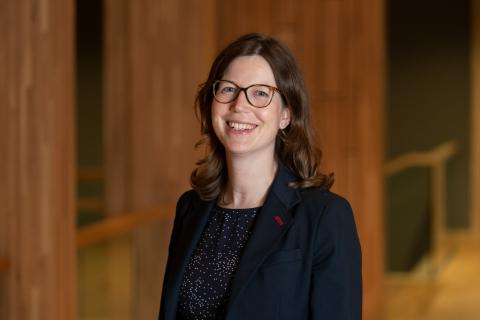Annemarthe van der Veen

My team and I are interested in the innate immune mechanisms that control viral infection and sterile inflammation. I pursued my PhD with Hidde Ploegh at the Whitehead Institute at MIT. Here, I worked on ubiquitin-like proteins and studied their role in cellular homeostasis and stress responses. After my PhD, I joined the laboratory of Caetano Reis e Sousa at The London Research Institute and later on at The Francis Crick Institute in London to study the innate immune mechanisms that are important for antiviral immunity. I investigated how the activation of nucleic acid sensors by viral RNA/DNA in the cytosol of infected cells controls the production of type I interferons, which are essential antiviral cytokines. In 2019, I joined the LUMC to continue my research. Thinking about viral ligands led to thinking about self-derived ligands. The latter can inadvertently activate the innate immune system, in the absence of an infection, leading to a sterile inflammatory response. Sterile inflammation is important in autoinflammatory conditions and autoimmune diseases. It is also a hallmark of cancer and can impact on immune responses against a tumor. It is unclear which self-derived molecules activate the innate immune system during sterile inflammation and via which pathways. My team therefore studies how the nucleic acid sensing machinery is activated by endogenous ligands. By studying the molecular mechanisms that underly innate immune activation, we aim to identify new targets for therapeutic intervention in autoinflammatory conditions and to inspire strategies to promote immunosurveillance in cancer. Our work is funded by the Institute of Chemical Immunology, an LUMC fellowship, and an NWO Vidi grant.

